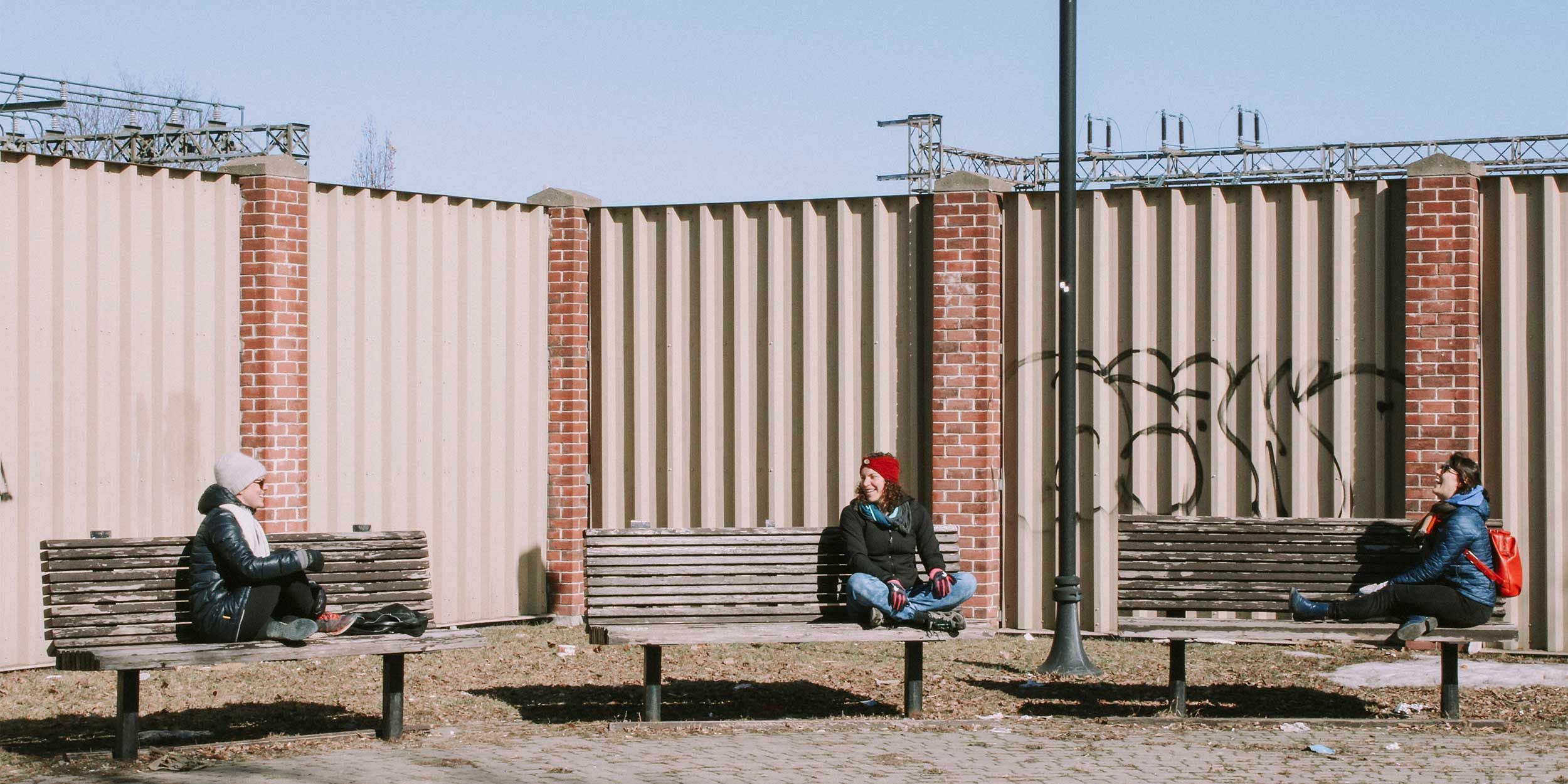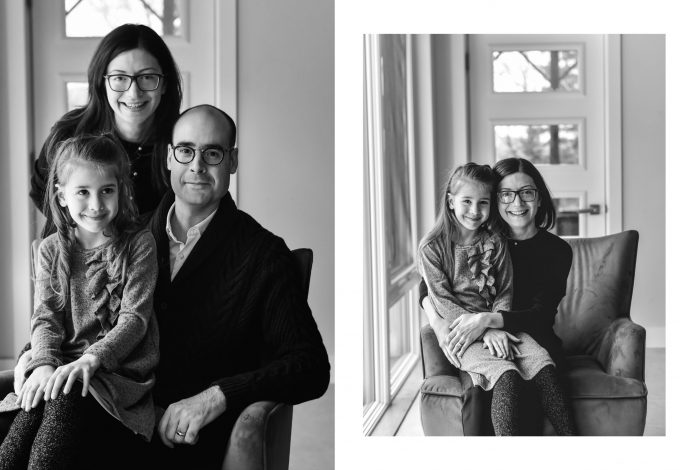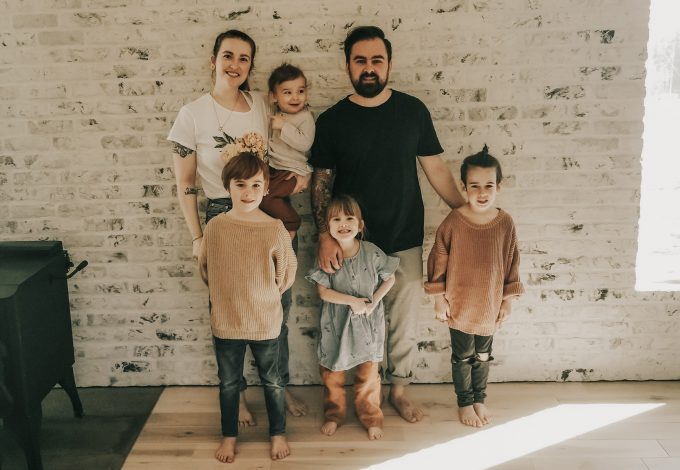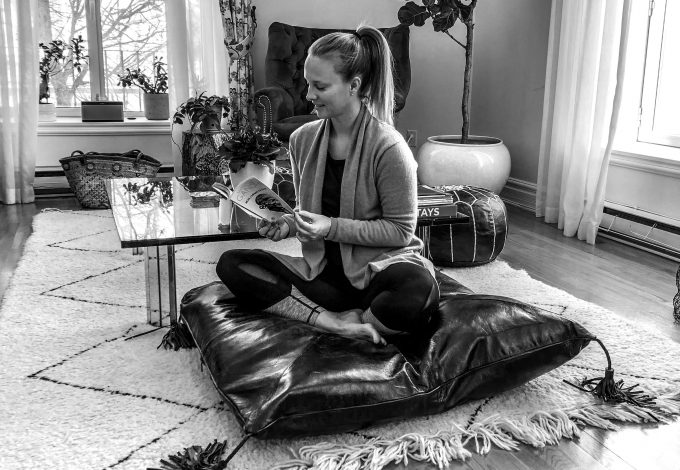Photo credit: Aurianne d’Aon
In my case, isolation related to COVID-19 happened as I was moving into the house I had just bought with my boyfriend. It is in the middle of the boxes and furniture to be assembled that I started seeing my clients by video conference for psychotherapy sessions, that I taught classes and that I continued my research work, which fortunately was already fairly easy to do at home. Getting an internet connection quickly has never been so necessary! Since then, I’ve been quietly getting to know every room in this house that isn’t really home yet, and I’ve watched this feeling of strangeness slowly vanish as we put the frames up, paint the walls and spend more and more time here. Every day I discover a new part of the courtyard that had been so far covered in snow, I walk in the streets of a neighbourhood I can finally call mine, I come across its residents, I see its stores and coffee shops and still feel very deeply like nothing of this is real. For me this crisis brings us back to what really matters, acknowledging all the little things we used to take for granted. Yes, economy is good, but health, family and friends are what’s important! This text is about the meaning each of us gives to the crisis.
When you think about it, it is not often that we are so many to feel the same thing all at the same time. As a psychologist, it is interesting to look at these emotions to try to understand their role in this situation. I keep telling my clients that their emotions are not only normal, but also very useful and worth caring about. So, let’s take a look at the emotions we are all experiencing at the moment; the most obvious is probably the anxiety. Even though it can seem like a bad thing, anxiety is currently critical to the success of the measures taken by the government. It’s the reason why we listen to and do what the authorities are asking us to do. However, when talking about emotions, too much is as good as not enough. So yes, we have to be careful!
Beyond anxiety, there is anger, sadness, guilt, relief, shame… What if our current collective feelings were similar to what we experience during a mourning process? It was an article by Scott Berinato that made me wonder about this idea, which I find very interesting.
What grief counselors are saying is that there would be six stages to grief. The first one is denial. Who can say they have not denied the seriousness of the situation, at least at the beginning? “It’s not worse than a flu: if I get sick, I won’t die!” After this comes anger: did you notice it? Think about the last weeks: aren’t you more angry and short-tempered? Feeling stress on a long period can also make us sharper. Then the negotiation: “Okay, I’m socially distancing myself from people for a couple of weeks, then if I don’t have any symptoms, I’ll be able to see a few friends”. In fourth comes sadness, which means decreased motivation, decreased interest in the activities you usually enjoy, feeling we’re all doing this in vain… Does this sound familiar? Eventually comes acceptance: we accept that the situation will be lasting for a certain time, that we must be creative and find ways of enjoying this new “normal”, etc. Finally, the sixth and last stage, that was recently added by the researchers, is the search for meaning. We are currently all trying to give meaning to this trying time. “It allows us to slow down, reminds us of the importance of social contacts, makes us realize the value of the work of certain people we didn’t notice, shows us that we can have business meetings virtually, teaches us to consume less, etc.” This being said, we must not forget that grief is not something linear. It is a complex process made up of steps that we will go through several times and whose duration will vary.
The key in this situation is to observe emotions and to identify them within us. When we better understand what we are feeling and why, our emotions become less intrusive and have less power over us. They continue to exist, we notice them and dwell on them, but they no longer determine our actions alone.
References
Bigelow, D. (2019). Finding Meaning: The Sixth Stage of Grief
Lupien, S. (2010). Par amour du stress. Éditions au Carré.







